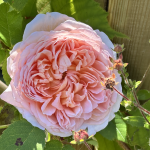On working with moral injury and climate anxiety
It’s raining again, so I worry that the slugs in our allotment will consume all the beautiful Farmer Gracy gladioli and baby borage. I cannot believe the country-wide slug invasion is so intense that even borage plants are not spared! In late July, we typically pick peas, sweat peas, courgettes, onions, and beetroot. We had to put our peas in late, during warmer, sunny days, and they only started blooming this week. Our potatoes are in bloom, too, and the first batch of early ones is in our pantry (and bellies;)) It is a year of roses, fruit trees and potatoes.
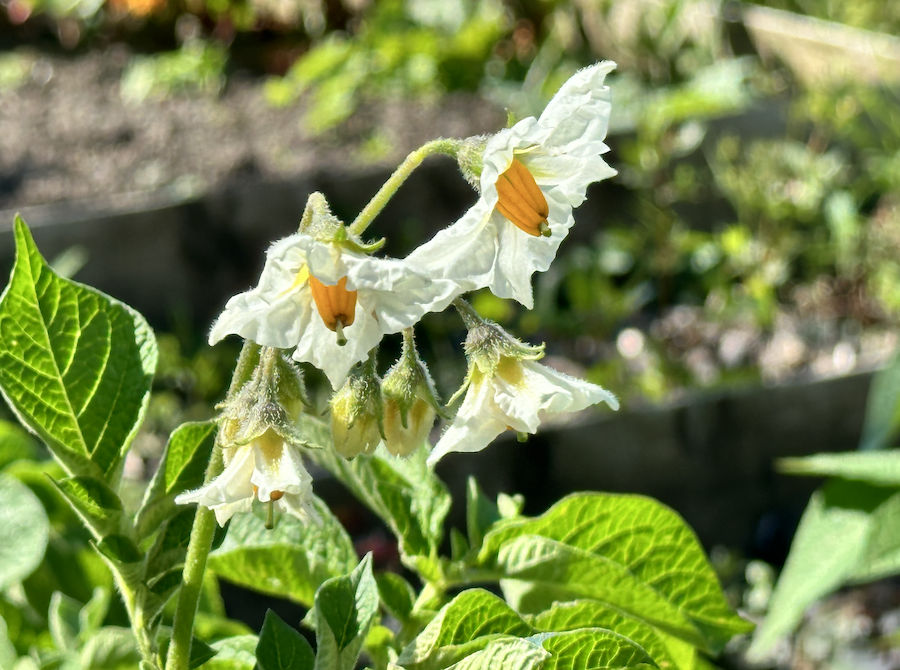
It comforts me to know that our allotment is designed to accommodate a wide variety of plants: veg, fruit, herbs, fruit trees and flowers. There is always something going on, and thanks to the wide range of herbs and flowers, as well as our stunning butterfly bushes, the plot is buzzing with insects and birds. I see that the foxes dine on our plot, too. I am finding feathers from their meals. (I am not grossed out; I grew up in a small village and was exposed to all aspects of the cycles of nature and the natural food chain. Yesterday, I also discovered that our pond frogs are back, which is great news.
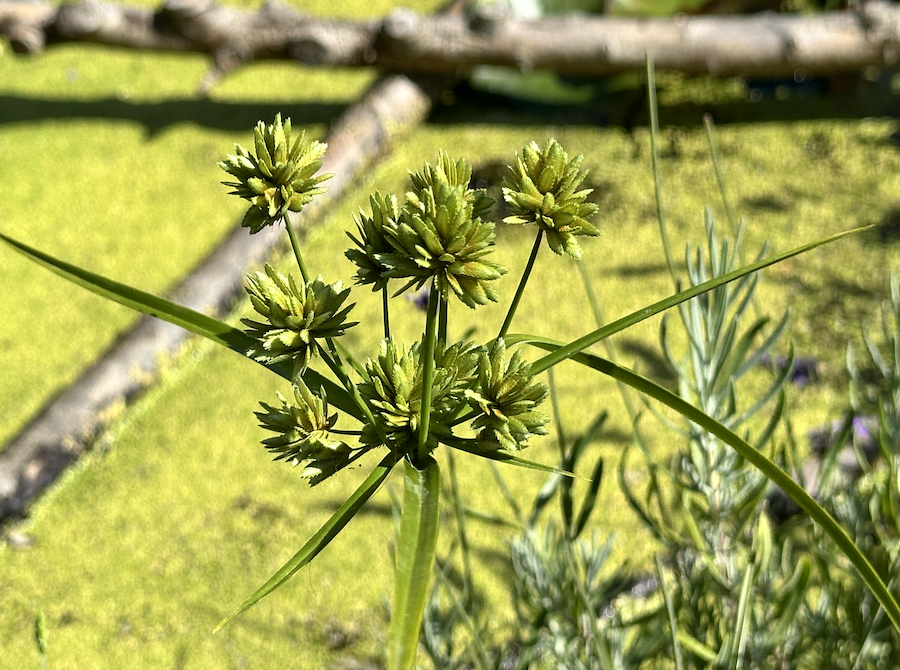
As we enter the harvest season, I am aware that autumn always sneaks up on me in the UK. It sometimes comes in early or late August, but this year, everything is fluid and layered. My neighbour’s rowan tree berries are already red, and the sweet chestnut trees on our office estate already bear giant green balls – almost ready to pop and share their conkers. As I observe the subtle changes in Nature, I also anchor myself in her wisdom. Who am I to decide what to grow on the allotment during the increasing climate crisis and slug domination? I need to trust her wisdom and adjust accordingly. If autumn comes earlier this year, so be it. I am grateful for it as it is. Gradually, I let go of the rigidness of my human need to dominate her cycles, wisdom, and beauty.
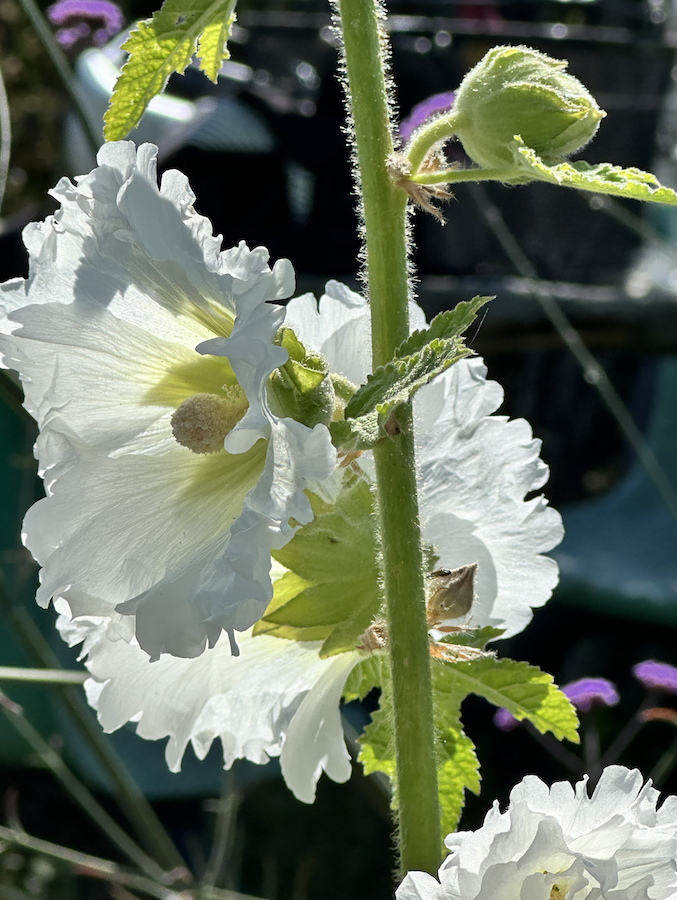
I generally feel better sitting with my climate distress now. Actually, I am proud that I can connect and sit with it. I have made a lot of effort to access the allotment and to notice and reconnect with Nature on a daily basis, which improves my wellbeing significantly, almost immediately. Cultivating the land helps me grow my roots here, respect the ancestors of this land, and connect with the wisdom of all lands – a notion that is so wisely pointed out in the recent Emergence Magazine film.
I see now how easily I was disconnecting from the climate distress. I see it all around me now. Just this morning, during my dog walk with lovely, kind, local dog walkers, I overheard the following exchange:
“So I hear you’re going to Spain for your holidays? That’s amazing!”
“Yes, it’s lush. It’s going to be unbearably hot, though.”
“Yeah, I hear it is very hot there this time of the year.”
“Yes, not sure what activities we can do…but we are going anyway.”
I fail to understand the lack of connections made in this conversation. It terrifies me just how disjointed the future of our planet is from our personal rituals and expectations of comfort. We will continue flying to southern countries and contributing to the climate crisis. We will continue repeating our ritual of family holidays (probably mostly organised by women who never get time off, not until their kids grow up or maybe not even then…). We will continue expecting the past when the present climate crisis is just in front of our faces. Victoria Smith stated the same disconnect in relation to the crisis of male violence, and I cannot help but think the two are very strongly connected. So I wonder, what is it going to take for ALL of us to stop thinking it is fashionable to fly for holidays, to fly at all? How many people need to suffer and die? Clearly, when Nature suffers, we still do not seem to care.
In moments like this morning walk, my climate distress floods my body, and I need to do a lot of work to regulate – as a therapist, I have a bag full of ideas and practices. I also mostly walk away. The task of calling it out is too big to remain safe. But this, and a few other similar experiences, made me think about how we are to manage the impact of those flippant, normalised, upsetting conversations while some of us do the hard work of trying to save the planet (for the record, I do).
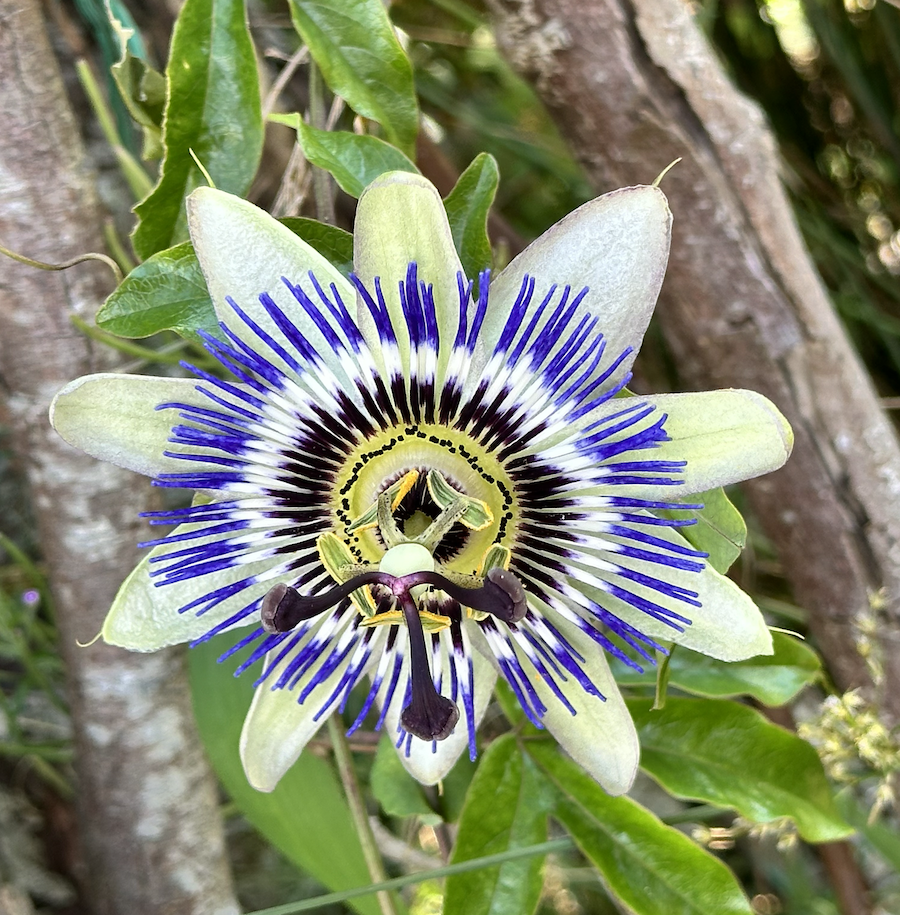
Reflection
Today, I want to share my ways of dealing with climate distress and unhelpful, upsetting, climate anxiety-inducing conversations. I would love to know what works for you.
- Connect with climate anxiety and climate distress gently, on your terms, and notice your feeling of discomfort (whether you call it out or not) – it’s not comfortable, but it is important to practice the ability to sit with it, to feel our broken heart (of Nature) and to be able to still hold our ground. Otherwise, those micro-moments of distress will build up into living in a risky environment (which is a form of trauma locked in our nervous systems).
- Ground yourself in soothing activities and relationships – share with someone trusted, have a cup of tea, give yourself a hug – process the micro-moment of distress out of your system as soon as possible, and release it. Remember, we need to be connected but also rested to do the work of tackling climate challenges (on a personal or professional level)
- Connect with Nature and trust her to hold this pain with you – it is her pain and our pain, too, as we are Nature. Connecting with the wider network of life gives our human brain a sense of perspective and helps to ease distress.
- (If you want to call it out and it is a safe thing to do) Practice language you feel comfortable using, and maybe consider the concept of calling in or bridging (finding a way to reach the other person who maybe stands on the other side of the argument). The best way to do so is to refer to your own experience instead of generalising. For example, I tend to say: “I appreciate this is important to you. However, I chose to focus on local micro-adventures instead because air travel contributes to/triggers my climate distress. I only fly if it’s strictly necessary.”
(I am going to think about more such sentences; I certainly think I will need them. In the meantime, I hope you have a good weekend ahead. I am off to check in with the soon-to-come conkers!)

